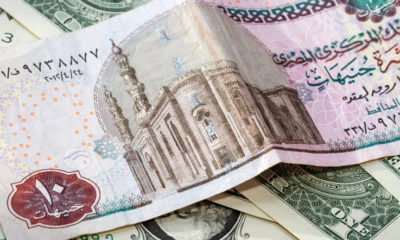In an effort to ease the rising inflation rate and encourage capital importation, the Monetary Policy Committee led by the Central Bank of Nigeria raised the interest rate by 100 basis points to 14% on Tuesday.
The apex bank had raised the interest rate twice in the last two months from 11.5% to 14%, representing a combined increase of 250 basis points despite the weak Naira value, slowing economic activities and growing uncertainty ahead of the general election in 2023.
Speaking on the development, Prof Uche Uwaleke, a professor of Capital Market and Chairman of the Chartered Institute of Bankers of Nigeria, Abuja Branch, said, “The hike in the MPR in quick succession from 11.5 per cent to 13 per cent in May and now to 14 per cent could signal panic on the part of the CBN and heightens uncertainty.
“This policy stance may not necessarily curb inflationary pressure given the pressure is not coming from monetary factors but from high costs of petroleum products, electricity and insecurity, ditto for rising exchange rate.
“So, expect to see in the coming months higher cost of borrowing, widening government deficit, slower economic growth, rising unemployment and bearish stock market.”
Explaining the possible impact of higher interest rates on Nigeria’s economic growth, Dr. Muda Yusuf, the Founder/Chief Executive Officer of the Centre for The Promotion Of Private Enterprise, said “the new MPR hike means that the cost of credit to the few beneficiaries of the bank credits will increase which will impact their operating costs, prices of their products and profit margins. The equities market may be adversely impacted by the hike.”
The Deputy-President of the Lagos Chamber of Commerce and Industry, Dr Gabriel Idahosa, also commented on the negative impact of higher borrowing costs.
According to him, higher interest rates would further push Nigerians below the poverty line.
According to him, the Nigerian situation, with over half the population living below the poverty line, did not justify raising interest rates in the manner it was being done in advanced economies where the income level was significantly higher than Nigeria’s.
Idahosa said, “Our own economy cannot stand this kind of rate hike, where you have unemployment, inflation going to 20 per cent. Manufacturers are not able to cope with current interest rates because of the cost of production. Diesel alone is sending many of them out of business. If you now add a high-interest rate, it’s not good for businesses that are already suffering from those other issues of inflation and power supply. They are supposed to do it on paper because the monetary policy says if you have inflation, you should increase interest rates.
“People in advanced countries are earning much more than they need to survive. So, when you increase rates like this, they will be able to save more. It makes sense in a mature economy, but half of the Nigerian population are currently below the poverty line, by all indices.”

 Education4 weeks ago
Education4 weeks ago
 News3 weeks ago
News3 weeks ago
 Business3 weeks ago
Business3 weeks ago
 Technology3 weeks ago
Technology3 weeks ago
 Investment4 weeks ago
Investment4 weeks ago
 Investment3 weeks ago
Investment3 weeks ago
 Telecommunications4 weeks ago
Telecommunications4 weeks ago
 Banking Sector3 weeks ago
Banking Sector3 weeks ago



























